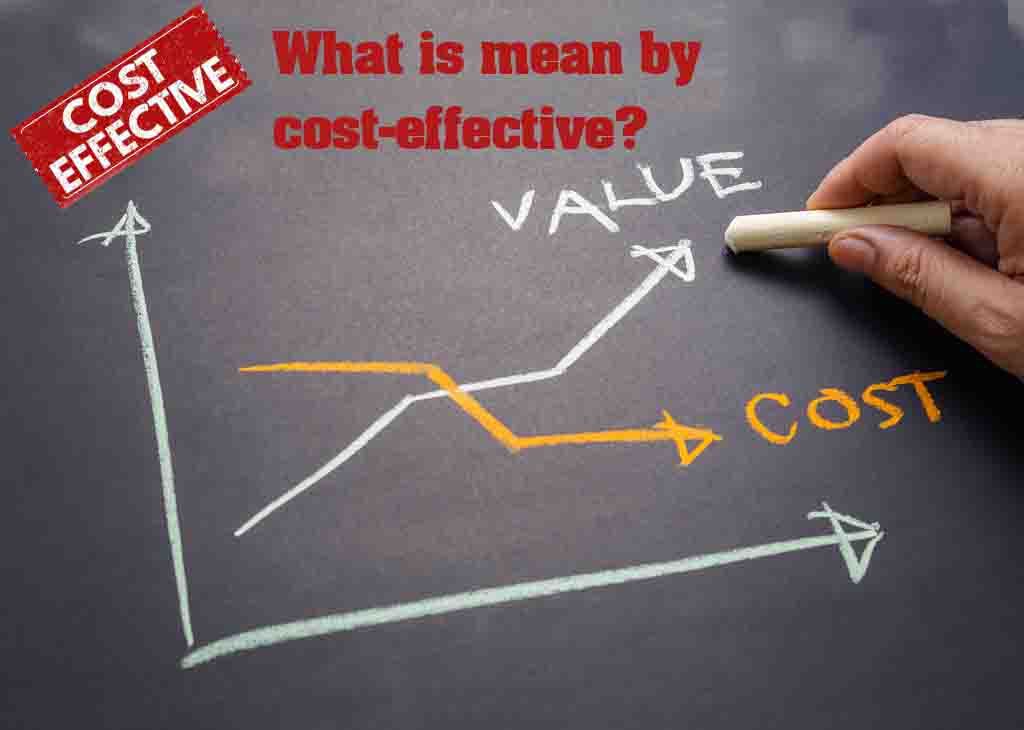
Cost-effectiveness is a term used to describe a process, service, or product that provides the greatest possible benefit for the lowest possible cost. The term is often used in business and economics to describe the efficiency of an operation or investment, and it is a critical factor in determining the success of a business.
When something is considered to be cost-effective, it means that it provides the most value for money spent. This does not necessarily mean that the item or service is the cheapest option available. Instead, cost-effectiveness considers the benefits that are provided relative to the cost incurred.
For example, a company may choose to purchase a more expensive piece of equipment that is more energy-efficient than a cheaper option. Although the initial cost of the more expensive equipment may be higher, the long-term savings in energy costs may make it a more cost-effective option in the long run.
In healthcare, cost-effectiveness is often used to evaluate medical treatments and interventions. A medical treatment may be considered cost-effective if it provides significant health benefits to patients at a reasonable cost. This type of evaluation is important for healthcare providers, policymakers, and insurance companies when making decisions about which treatments to cover and which ones to exclude from coverage.
Cost-effectiveness is also relevant in personal finance. When making purchasing decisions, individuals may choose to evaluate the cost-effectiveness of different options to determine which one provides the most value for their money. For example, when purchasing a car, an individual may consider the cost of the car, its fuel efficiency, and maintenance costs to determine which option is the most cost-effective.
Cost-effectiveness is a term used to describe the efficiency of a process, service, or product. It takes into account the benefits provided relative to the cost incurred and is an important factor in decision-making processes across many industries. By evaluating the cost-effectiveness of different options, individuals and organizations can make informed decisions that provide the most value for their money.
A: Cost-effective refers to something that is able to achieve a desired outcome or goal in the most efficient and economical way possible, without sacrificing quality or effectiveness.
A: Cost-effectiveness is determined by comparing the costs of achieving a particular outcome or goal with the benefits that result from achieving it. In other words, it involves weighing the costs of different options against their potential benefits, in order to determine which option offers the best value for money.
A: Cost-effective solutions can include anything that achieves a desired outcome or goal in a way that is both efficient and economical. Some examples might include using energy-efficient appliances to reduce electricity costs, implementing a recycling program to reduce waste disposal costs, or investing in employee training to increase productivity and reduce turnover.
A: Businesses can become more cost-effective by analyzing their current operations and identifying areas where they can reduce costs or improve efficiency. This might involve streamlining processes, renegotiating contracts with suppliers, implementing new technology or software, or investing in employee training to improve skills and productivity.
A: No, cost-effectiveness is not the same as cost-cutting. While both involve reducing costs, cost-effectiveness focuses on achieving a desired outcome or goal in the most efficient and economical way possible, whereas cost-cutting may involve sacrificing quality or effectiveness in order to reduce costs.
A: The benefits of being cost-effective include increased profitability, improved competitiveness, and greater financial stability. By reducing costs and improving efficiency, businesses can increase their profit margins, which can in turn be reinvested in the business to drive growth and innovation. Additionally, cost-effective businesses are better equipped to compete in their markets, as they can offer products or services at lower prices than their competitors.
This post was last modified on March 9, 2023 2:35 pm
Probably, but this is the first time we’ve driven the latest Rolls-Royce convertible on UK roads. After all, Britain loves…
How to whitelist morpho device How to whitelist morpho device : Morpho Device का उपयोग करने के लिए Device को Whitelist…
How to cancel Jio recharge and get refund? Jio is one of the largest mobile network operators in India, providing…
Amazon Franchise Kaise Le? Duniya bhar mein online shopping ka trend tezi se badh raha hai, aur Amazon jaise e-commerce…
In today's fast-paced world, where convenience and accessibility are paramount, it's no surprise that financial services have also evolved to…
mobile number se loan: एक त्वरित और सुविधाजनक वित्तीय समाधान आज की तेजी से बदलती दुनिया में, वित्तीय संसाधनों का…